 Tìm kiếm
Tìm kiếm
Chương II Bộ luật Tố tụng hình sự 2015: Những nguyên tắc cơ bản
| Số hiệu: | 26/2015/TT-BTC | Loại văn bản: | Thông tư |
| Nơi ban hành: | Bộ Tài chính | Người ký: | Đỗ Hoàng Anh Tuấn |
| Ngày ban hành: | 27/02/2015 | Ngày hiệu lực: | 01/01/2015 |
| Ngày công báo: | 22/03/2015 | Số công báo: | Từ số 367 đến số 368 |
| Lĩnh vực: | Thuế - Phí - Lệ Phí, Kế toán - Kiểm toán | Tình trạng: | Còn hiệu lực |
TÓM TẮT VĂN BẢN
Hướng dẫn mới về Thuế GTGT, Hóa đơn bán hàng
Ngày 27/02/2015, Bộ Tài chính ban hành Thông tư 26/2015/TT-BTC hướng dẫn về thuế GTGT, quản lý thuế và sửa đổi một số điều về hoá đơn bán hàng hoá, cung ứng dịch vụ.
Theo đó, mở rộng các đối tượng không chịu thuế GTGT như:
- Phân bón là các loại phân hữu cơ và phân vô cơ (urê, NPK, bồ tạt...);
- Thức ăn cho gia súc, gia cầm, thủy sản và thức ăn cho vật nuôi khác;
- Tàu đánh bắt xa bờ có công suất máy chính từ 90CV trở lên làm nghề khai thác hải sản hoặc dịch vụ hậu cần;
- Máy móc, thiết bị chuyên dùng phục vụ cho sản xuất nông nghiệp.
Ngoài ra, Thông tư bổ sung quy định: “Sau 05 ngày làm việc cơ quan quản lý thuế trực tiếp không có ý kiến bằng văn bản thì Doanh nghiệp được phép sử dụng hoá đơn tự in” đối với trường hợp quy định tại điểm b khoản 1 điều 6 Thông tư 39/2014/TT-BTC .
Thông tư này có hiệu lực từ ngày 01/01/2015.
Văn bản tiếng việt
Văn bản tiếng anh
Mọi hoạt động tố tụng hình sự phải được thực hiện theo quy định của Bộ luật này. Không được giải quyết nguồn tin về tội phạm, khởi tố, điều tra, truy tố, xét xử ngoài những căn cứ và trình tự, thủ tục do Bộ luật này quy định.
Khi tiến hành tố tụng, trong phạm vi nhiệm vụ, quyền hạn của mình, cơ quan, người có thẩm quyền tiến hành tố tụng phải tôn trọng và bảo vệ quyền con người, quyền và lợi ích hợp pháp của cá nhân; thường xuyên kiểm tra tính hợp pháp và sự cần thiết của những biện pháp đã áp dụng, kịp thời hủy bỏ hoặc thay đổi những biện pháp đó nếu xét thấy có vi phạm pháp luật hoặc không còn cần thiết.
Tố tụng hình sự được tiến hành theo nguyên tắc mọi người đều bình đẳng trước pháp luật, không phân biệt dân tộc, giới tính, tín ngưỡng, tôn giáo, thành phần và địa vị xã hội. Bất cứ người nào phạm tội đều bị xử lý theo pháp luật.
Mọi pháp nhân đều bình đẳng trước pháp luật, không phân biệt hình thức sở hữu và thành phần kinh tế.
Mọi người có quyền bất khả xâm phạm về thân thể. Không ai bị bắt nếu không có quyết định của Tòa án, quyết định hoặc phê chuẩn của Viện kiểm sát, trừ trường hợp phạm tội quả tang.
Việc giữ người trong trường hợp khẩn cấp, việc bắt, tạm giữ, tạm giam người phải theo quy định của Bộ luật này. Nghiêm cấm tra tấn, bức cung, dùng nhục hình hay bất kỳ hình thức đối xử nào khác xâm phạm thân thể, tính mạng, sức khỏe của con người.
Mọi người có quyền được pháp luật bảo hộ về tính mạng, sức khoẻ, danh dự, nhân phẩm, tài sản.
Mọi hành vi xâm phạm trái pháp luật tính mạng, sức khoẻ, danh dự, nhân phẩm, tài sản của cá nhân; xâm phạm danh dự, uy tín, tài sản của pháp nhân đều bị xử lý theo pháp luật.
Công dân Việt Nam không thể bị trục xuất, giao nộp cho nhà nước khác.
Không ai được xâm phạm trái pháp luật chỗ ở, đời sống riêng tư, bí mật cá nhân, bí mật gia đình, an toàn và bí mật thư tín, điện thoại, điện tín và các hình thức trao đổi thông tin riêng tư khác của cá nhân.
Việc khám xét chỗ ở; khám xét, tạm giữ và thu giữ thư tín, điện thoại, điện tín, dữ liệu điện tử và các hình thức trao đổi thông tin riêng tư khác phải được thực hiện theo quy định của Bộ luật này.
Người bị buộc tội được coi là không có tội cho đến khi được chứng minh theo trình tự, thủ tục do Bộ luật này quy định và có bản án kết tội của Tòa án đã có hiệu lực pháp luật.
Khi không đủ và không thể làm sáng tỏ căn cứ để buộc tội, kết tội theo trình tự, thủ tục do Bộ luật này quy định thì cơ quan, người có thẩm quyền tiến hành tố tụng phải kết luận người bị buộc tội không có tội.
Không được khởi tố, điều tra, truy tố, xét xử đối với người mà hành vi của họ đã có bản án của Tòa án đã có hiệu lực pháp luật, trừ trường hợp họ thực hiện hành vi nguy hiểm khác cho xã hội mà Bộ luật hình sự quy định là tội phạm.
Trách nhiệm chứng minh tội phạm thuộc về cơ quan có thẩm quyền tiến hành tố tụng. Người bị buộc tội có quyền nhưng không buộc phải chứng minh là mình vô tội.
Trong phạm vi nhiệm vụ, quyền hạn của mình, cơ quan có thẩm quyền tiến hành tố tụng phải áp dụng các biện pháp hợp pháp để xác định sự thật của vụ án một cách khách quan, toàn diện và đầy đủ, làm rõ chứng cứ xác định có tội và chứng cứ xác định vô tội, tình tiết tăng nặng và tình tiết giảm nhẹ trách nhiệm hình sự của người bị buộc tội.
Người bị buộc tội có quyền tự bào chữa, nhờ luật sư hoặc người khác bào chữa.
Cơ quan, người có thẩm quyền tiến hành tố tụng có trách nhiệm thông báo, giải thích và bảo đảm cho người bị buộc tội, bị hại, đương sự thực hiện đầy đủ quyền bào chữa, quyền và lợi ích hợp pháp của họ theo quy định của Bộ luật này.
Trong quá trình tiến hành tố tụng, cơ quan, người có thẩm quyền tiến hành tố tụng phải nghiêm chỉnh thực hiện quy định của pháp luật và phải chịu trách nhiệm về hành vi, quyết định của mình.
Người vi phạm pháp luật trong việc giữ người trong trường hợp khẩn cấp, bắt, giam, giữ, khởi tố, điều tra, truy tố, xét xử, thi hành án thì tuỳ tính chất, mức độ vi phạm mà bị xử lý kỷ luật hoặc bị truy cứu trách nhiệm hình sự theo quy định của luật.
Khi phát hiện hành vi có dấu hiệu tội phạm, trong phạm vi nhiệm vụ, quyền hạn của mình, cơ quan có thẩm quyền tiến hành tố tụng có trách nhiệm khởi tố vụ án, áp dụng các biện pháp do Bộ luật này quy định để xác định tội phạm và xử lý người phạm tội, pháp nhân phạm tội.
Không được khởi tố vụ án ngoài những căn cứ và trình tự, thủ tục do Bộ luật này quy định.
Cơ quan điều tra, cơ quan được giao nhiệm vụ tiến hành một số hoạt động điều tra phải tuân thủ pháp luật khi tiến hành hoạt động điều tra theo quy định của Bộ luật này.
Mọi hoạt động điều tra phải tôn trọng sự thật, tiến hành khách quan, toàn diện và đầy đủ; phát hiện nhanh chóng, chính xác mọi hành vi phạm tội, làm rõ chứng cứ xác định có tội và chứng cứ xác định vô tội, tình tiết tăng nặng, tình tiết giảm nhẹ trách nhiệm hình sự, nguyên nhân, điều kiện phạm tội và những tình tiết khác có ý nghĩa đối với việc giải quyết vụ án.
Viện kiểm sát thực hành quyền công tố và kiểm sát việc tuân theo pháp luật trong tố tụng hình sự, quyết định việc buộc tội, phát hiện vi phạm pháp luật nhằm bảo đảm mọi hành vi phạm tội, người phạm tội, pháp nhân phạm tội, vi phạm pháp luật đều phải được phát hiện và xử lý kịp thời, nghiêm minh, việc khởi tố, điều tra, truy tố, xét xử, thi hành án đúng người, đúng tội, đúng pháp luật, không để lọt tội phạm và người phạm tội, pháp nhân phạm tội, không làm oan người vô tội.
Người có thẩm quyền tiến hành tố tụng, người phiên dịch, người dịch thuật, người giám định, người định giá tài sản, người chứng kiến không được tham gia tố tụng nếu có lý do cho rằng họ có thể không vô tư trong khi thực hiện nhiệm vụ.
Việc xét xử sơ thẩm của Tòa án có Hội thẩm tham gia, trừ trường hợp xét xử theo thủ tục rút gọn do Bộ luật này quy định.
Thẩm phán, Hội thẩm xét xử độc lập và chỉ tuân theo pháp luật; nghiêm cấm cơ quan, tổ chức, cá nhân can thiệp vào việc xét xử của Thẩm phán, Hội thẩm.
Cơ quan, tổ chức, cá nhân can thiệp vào việc xét xử của Thẩm phán, Hội thẩm dưới bất kỳ hình thức nào thì tùy tính chất, mức độ vi phạm mà bị xử lý kỷ luật, xử phạt vi phạm hành chính hoặc bị truy cứu trách nhiệm hình sự theo quy định của luật.
Tòa án xét xử tập thể và quyết định theo đa số, trừ trường hợp xét xử theo thủ tục rút gọn do Bộ luật này quy định.
Tòa án xét xử kịp thời trong thời hạn luật định, bảo đảm công bằng.
Tòa án xét xử công khai, mọi người đều có quyền tham dự phiên tòa, trừ trường hợp do Bộ luật này quy định. Trường hợp đặc biệt cần giữ bí mật nhà nước, thuần phong, mỹ tục của dân tộc, bảo vệ người dưới 18 tuổi hoặc để giữ bí mật đời tư theo yêu cầu chính đáng của đương sự thì Tòa án có thể xét xử kín nhưng phải tuyên án công khai.
Trong quá trình khởi tố, điều tra, truy tố, xét xử, Điều tra viên, Kiểm sát viên, người khác có thẩm quyền tiến hành tố tụng, người bị buộc tội, người bào chữa và người tham gia tố tụng khác đều có quyền bình đẳng trong việc đưa ra chứng cứ, đánh giá chứng cứ, đưa ra yêu cầu để làm rõ sự thật khách quan của vụ án.
Tài liệu, chứng cứ trong hồ sơ vụ án do Viện kiểm sát chuyển đến Tòa án để xét xử phải đầy đủ và hợp pháp. Phiên tòa xét xử vụ án hình sự phải có mặt đầy đủ những người theo quy định của Bộ luật này, trường hợp vắng mặt phải vì lý do bất khả kháng hoặc do trở ngại khách quan hoặc trường hợp khác do Bộ luật này quy định. Tòa án có trách nhiệm tạo điều kiện cho Kiểm sát viên, bị cáo, người bào chữa, những người tham gia tố tụng khác thực hiện đầy đủ quyền, nghĩa vụ của mình và tranh tụng dân chủ, bình đẳng trước Tòa án.
Mọi chứng cứ xác định có tội, chứng cứ xác định vô tội, tình tiết tăng nặng, tình tiết giảm nhẹ trách nhiệm hình sự, áp dụng điểm, khoản, điều của Bộ luật hình sự để xác định tội danh, quyết định hình phạt, mức bồi thường thiệt hại đối với bị cáo, xử lý vật chứng và những tình tiết khác có ý nghĩa giải quyết vụ án đều phải được trình bày, tranh luận, làm rõ tại phiên tòa.
Bản án, quyết định của Tòa án phải căn cứ vào kết quả kiểm tra, đánh giá chứng cứ và kết quả tranh tụng tại phiên tòa.
1. Chế độ xét xử sơ thẩm, phúc thẩm được bảo đảm.
Bản án, quyết định sơ thẩm của Tòa án có thể bị kháng cáo, kháng nghị theo quy định của Bộ luật này. Bản án, quyết định sơ thẩm không bị kháng cáo, kháng nghị trong thời hạn do Bộ luật này quy định thì có hiệu lực pháp luật.
Bản án, quyết định sơ thẩm bị kháng cáo, kháng nghị thì vụ án phải được xét xử phúc thẩm. Bản án, quyết định phúc thẩm của Tòa án có hiệu lực pháp luật.
2. Bản án, quyết định của Tòa án đã có hiệu lực pháp luật mà phát hiện có vi phạm pháp luật nghiêm trọng hoặc có tình tiết mới theo quy định của Bộ luật này thì được xem xét lại theo trình tự giám đốc thẩm hoặc tái thẩm.
1. Bản án, quyết định của Tòa án đã có hiệu lực pháp luật phải được cơ quan, tổ chức, cá nhân tôn trọng. Cơ quan, tổ chức, cá nhân hữu quan phải nghiêm chỉnh chấp hành.
2. Trong phạm vi nhiệm vụ, quyền hạn, nghĩa vụ của mình, cơ quan, tổ chức, cá nhân có trách nhiệm phối hợp, tạo điều kiện và thực hiện yêu cầu của cơ quan, tổ chức, cá nhân có nhiệm vụ thi hành bản án, quyết định của Tòa án.
Tiếng nói và chữ viết dùng trong tố tụng hình sự là tiếng Việt. Người tham gia tố tụng có quyền dùng tiếng nói và chữ viết của dân tộc mình, trường hợp này phải có phiên dịch.
Việc giải quyết vấn đề dân sự trong vụ án hình sự được tiến hành cùng với việc giải quyết vụ án hình sự. Trường hợp vụ án hình sự phải giải quyết vấn đề bồi thường thiệt hại, bồi hoàn mà chưa có điều kiện chứng minh và không ảnh hưởng đến việc giải quyết vụ án hình sự thì vấn đề dân sự có thể tách ra để giải quyết theo thủ tục tố tụng dân sự.
1. Người bị giữ trong trường hợp khẩn cấp, người bị bắt, bị tạm giữ, tạm giam, khởi tố, điều tra, truy tố, xét xử, thi hành án oan, trái pháp luật có quyền được bồi thường thiệt hại về vật chất, tinh thần và phục hồi danh dự.
Nhà nước có trách nhiệm bồi thường thiệt hại và phục hồi danh dự, quyền lợi cho người bị giữ trong trường hợp khẩn cấp, người bị bắt, bị tạm giữ, tạm giam, khởi tố, điều tra, truy tố, xét xử, thi hành án oan, trái pháp luật do cơ quan, người có thẩm quyền tiến hành tố tụng gây ra.
2. Người khác bị thiệt hại do cơ quan, người có thẩm quyền tiến hành tố tụng gây ra có quyền được Nhà nước bồi thường thiệt hại.
Cá nhân, cơ quan, tổ chức có quyền khiếu nại, cá nhân có quyền tố cáo hành vi vi phạm pháp luật trong hoạt động tố tụng hình sự của cơ quan, người có thẩm quyền tiến hành tố tụng hoặc của bất cứ cá nhân nào thuộc các cơ quan đó.
Cơ quan, người có thẩm quyền phải tiếp nhận, xem xét và giải quyết khiếu nại, tố cáo kịp thời, đúng pháp luật; gửi văn bản kết quả giải quyết cho người khiếu nại, tố cáo, cơ quan, tổ chức khiếu nại và có biện pháp khắc phục.
Trình tự, thủ tục, thẩm quyền giải quyết khiếu nại, tố cáo do Bộ luật này quy định.
Nghiêm cấm việc trả thù người khiếu nại, tố cáo hoặc lợi dụng quyền khiếu nại, tố cáo để vu khống người khác.
1. Cơ quan, người có thẩm quyền tiến hành tố tụng phải thường xuyên kiểm tra việc tiến hành các hoạt động tố tụng thuộc thẩm quyền; thực hiện kiểm soát giữa các cơ quan trong việc tiếp nhận, giải quyết nguồn tin về tội phạm, khởi tố, điều tra, truy tố, xét xử, thi hành án.
2. Cơ quan nhà nước, Ủy ban Mặt trận Tổ quốc Việt Nam và các tổ chức thành viên của Mặt trận, đại biểu dân cử có quyền giám sát hoạt động của cơ quan, người có thẩm quyền tiến hành tố tụng; giám sát việc giải quyết khiếu nại, tố cáo của cơ quan, người có thẩm quyền tiến hành tố tụng.
Nếu phát hiện hành vi trái pháp luật của cơ quan, người có thẩm quyền tiến hành tố tụng thì cơ quan nhà nước, đại biểu dân cử có quyền yêu cầu, Ủy ban Mặt trận Tổ quốc Việt Nam và các tổ chức thành viên của Mặt trận có quyền kiến nghị với cơ quan có thẩm quyền tiến hành tố tụng xem xét, giải quyết theo quy định của Bộ luật này. Cơ quan có thẩm quyền tiến hành tố tụng phải xem xét, giải quyết và trả lời kiến nghị, yêu cầu đó theo quy định của pháp luật.
FUNDAMENTAL PRINCIPLES
Article 7. Upkeep of socialist law enforcement regarding criminal procedures
Every activity of criminal procedures must abide by this Law. The processing of criminal information, filing of charges, investigation, prosecution and adjudication shall abide only by the grounds, procedures and formalities as defined by this Law.
Article 8. Veneration and protection of human rights and individuals’ legitimate rights and interests.
Competent procedural authorities and persons, when instituting legal proceedings within their duties and authority, must respect and protect human rights and individuals’ legitimate rights and interests. Measures imposed, whose validity and requisite are regularly inspected, shall be removed or altered if violating laws or deemed unessential.
Article 9. Conservation of legal equality
Criminal procedure occurs on the principle under which all people are subject to the same laws of justice, regardless of race, gender, belief, religion, social class and status. Every person committing crime is treated under the law.
Every juridical person is equal before the law, regardless of its form of ownership and economic class.
Article 10. Sustainment of bodily integrity
Every person is entitled to inviolability of the physical body. No person is arrested without a Court’s warrant or Procuracy's decision or approval, except for acts in flagrante.
Emergency custody, arrest, temporary detainment or detention must abide by this Law. Torture, extortion of deposition, corporal punishment or any treatments violating a person’s body, life and health are inhibited.
Article 11. Protection of individuals’ life, health, honor, dignity and belongings and juridical persons’ reputation and property
Life, health, honor, dignity and belongings of every person are protected by the laws.
The laws penalize all unlawful violations of a person's life, health, honor, dignity and belongings and a juridical person’s fame, reputation and property.
Vietnamese citizens cannot be deported or handed to another government.
Article 12. Alimentation of inviolability of residence, privacy, personal secrecy, family secrets, safety and confidentiality of personal mail, telephone and telegraph
No person can illegally violates others’ residence, privacy, personal secrecy, family secrets, safety and confidentiality of mail, telephone, telegraph and other forms of personal communication.
Search of residence, search and seizure or temporary confiscation of mails, phones, telegraphs, electronic data and other forms of private communication must abide by this Law.
Article 13. Presumption of innocence
A accused person is deemed innocent until his guilt is evidenced according to the procedures and formalities as defined in this Law and a Court passes a valid conviction.
If grounds for conviction, as per the procedures and formalities in this Law, do not suffice, competent procedural authorities and persons shall adjudge the accused person to be not guilty.
A person is not charged, investigated, prosecuted or tried on an act, for which a Court's effective conviction has been passed, unless that person commits another act jeopardizing the society and deemed criminal by the Criminal Code.
Article 15. Determination of facts in a lawsuit
Competent procedural authorities are held liable for proving guilt. A accused person is entitled to but is not obliged to prove his innocence.
Competent procedural authorities, within their duties and authority, must use legitimate measures to determine the facts of a lawsuit in unbiased, thorough and complete ways, to clarify the evidences of guilt and innocence, aggravation and mitigation of criminal liabilities of the accused person.
Article 16. Guarantee of right of defense for accused persons and protection of legal rights and benefits of defendants and litigants
A accused person is entitled to defend himself or be defended by a lawyer or another person.
Competent procedural authorities and persons are responsible for informing accused persons, defendants and litigants of all of their rights of defense, legitimate rights and benefits according to this Law. Moreover, competent procedural authorities and persons shall provide explanations and guarantee the implementation of all of such rights and benefits.
Article 17. Responsibilities of authorities and persons given authority to institute proceedings
Competent procedural authorities and persons, when instituting proceedings, must strictly conform to the laws and shall be held liable for their actions and decisions.
An individual violating legal regulations on emergency custody of people, arrest, imprisonment, custody, charge, investigation, prosecution, adjudication, sentence enforcement, by nature and level of such violations, shall be disciplined or face criminal charges according to the laws.
Article 18. Responsibilities for filing of charges and handling of criminal cases
Competent procedural authorities, when detecting signs of criminal activities, are responsible for filing charges and lawsuits within their duties and authority and for taking measures as defined by this Law to ascertain criminals and penalize persons and juridical persons found guilty.
Filing of charges and lawsuits shall only conform to the grounds, procedures and formalities as defined by this Law.
Article 19. Legal compliance in investigative activities
Investigation authorities and authorities assigned to perform certain activities of investigation must observe the laws when conducting investigation as per this Law.
Every activity of investigation must attend to truths and occur in unbiased, thorough and complete ways to swiftly and precisely uncover all guilty acts and indicate evidences of guilt and innocence, aggravation and mitigation of criminal liabilities, reasons, conditions for crime and other facts essential to handle the cases.
Article 20. Responsibilities for exercising the right of prosecution and overseeing legal compliance in criminal procedure
The procuracy exercises the right of prosecution and oversees legal compliance in criminal procedure, renders decisions on conviction, expose violations of laws to have all guilty acts, persons and juridical persons committing crime and violating laws exposed and penalized in timely and stringent manners. It must assure that charges, investigation, prosecution, adjudication and sentence enforcement apply to the exact entities precisely for what they commit according to the laws. It must assure that omission of crime and criminals or misjudgment does not occur.
Article 21. Assurance of impartiality of persons given authority to institute or engaging in legal proceedings
Persons given authority to institute proceedings, interpreters, translators, expert witnesses, valuators and witnesses are not permitted to engage in proceedings if they may not be impartial, for any reasons, to carry out duties.
Article 22. Trial participated by lay assessors
A trial participated by lay assessors occurs in a Court of first instance, unless summary procedures are implemented according to this Law.
Article 23. Independence of Judge and lay assessors and sole compliance to the laws
Judge and lay assessors adjudicate independently and comply solely with the laws. Authorities and entities are forbidden to interfere the adjudication by Judge and lay assessors.
Authorities and entities interfering the adjudication by Judge and lay assessors in any manners shall be disciplined, face administrative fines or criminal charges, by nature and level of their violations, according to the laws.
Article 24. Collective adjudication
A Court tries collectively and renders decisions under majority rule, except for summary procedures according to this Law.
Article 25. Timely, just and public trial
A Court holds trials in timely manner by the regulated deadline and upholds fairness.
A Court tries publicly and every person is entitled to attend the trial, unless otherwise stated in this Law. For special cases involved in state secrets, national traditions, protection of persons aged below 18 or personal privacy as per litigants’ rational requests, a Court may try in closed session but must pronounce its judgments publicly.
Article 26. Assurance of oral arguments in adjudication process
During the charges, investigation, prosecution, adjudication, investigators, prosecutors, persons authorized to institute proceedings, defendants, defense counsels and other persons participating in proceedings are equally entitled to present and evaluate evidences and make requests for clarification of objective truths of the lawsuit.
Documents and evidences from the case file, brought to The procuracy to the Court for trial, must be sufficient and legitimate. All relevant persons, as defined by this Law, must attend a criminal Court. Absence must be because of force majeure or objective obstacles or other situations according to this Law. The Court is responsible for supporting prosecutors, defendants, defense counsels and other participants in legal proceedings to exercise all of their rights and duties and provoke oral arguments in democratic and equal manners before the Court.
All evidences of guilt and innocence, aggravation and mitigation of criminal liabilities, citation of Points, Sections or Articles in the Criminal Code for determination of defendants’ crimes, sentences, compensations, and handling of proofs and other facts essential to the lawsuit must done, argued and specified in court.
The Court’s judgments and rulings must be subject to the inspection and assessment of evidences and oral arguments in court.
Article 27. Affirmation of first-instance and appellate procedure
1. Trial by first-instance and appellate Courts is affirmed.
A first-instance Court’s judgments or rulings may be appealed according to this Law. A first-instance Court's judgments or rulings, if not appealed by the deadline as defined in this Law, shall come into effect.
A first-instance Court's judgments, if appealed, shall be reheard by an appellate Court. The appellate Court’s judgments or rulings shall come into force.
2. A Court’s effective judgments or rulings, if such is found to make a serious error of law or new facts emerge as per this Law, shall be reviewed through the procedures of cassation or reopening, respectively.
Article 28. Warranty of the effect of Court’s judgments and rulings
1. Authorities and entities must observed a Court's judgments or rulings, after given legal effect. Concerned authorities’ and entities’ compliance must be exercised in grave manner.
2. Authorities and entities, under their missions, authority and duties, are responsible for cooperating, supporting and fulfilling requests from authorities and entities liable for enforcing a Court's judgments and rulings.
Article 29. Spoken and written language for criminal procedure
Vietnamese is the spoken and written language for criminal procedure. Participants in proceedings are permitted to speak and write in their native languages, in the mandatory presence of a translator.
Article 30. Civil matters in criminal cases
Civil matters in criminal cases are resolved during the settlement of criminal cases. If a criminal lawsuit deals with damage claims backed by insufficient evidences and causing little effect on the settlement of such case, civil matters may be separated and settled through civil procedure.
Article 31. Guarantee of compensations for crime victims in criminal cases
1. Persons held in emergency custody, arrested, temporarily detained or held in detention, charged, investigated, prosecuted, tried and sentenced incorrectly or illegally shall be compensated for physical and spiritual damage and restoration of dignity.
The government is held liable for compensating persons, held in emergency custody, arrested, temporarily detained or held in detention, charged, investigated, prosecuted, tried and sentenced incorrectly or illegally by competent procedural authorities and persons, damage and recovery of dignity and interests.
2. Other persons suffering from damage caused by competent procedural authorities and persons are entitled to the Government’s compensations.
Article 32. Guarantee of rights of complaint and denouncement in criminal procedure
Individuals are permitted to file complaints or denouncement, while organizations are allowed to file complaints, against violations of legal regulations on criminal procedure by competent procedural authorities and persons or personnel of such entities.
Competent authorities and persons must receive, hear and settle complaints and denouncements in timely and lawful manners. Results of their hearings and solutions shall be given in writing to persons and organizations filing accusations or complaints.
Procedures, formalities and authority for the settlement of complaints and accusations are governed by this Law.
It is inhibited to take vengeance on persons filing complaints or accusations or to abuse rights of complaint and denouncement to vilify others.
Article 33. Inspection and supervision of criminal procedure
1. Competent procedural authorities and persons must regularly inspect the activities of criminal procedure within their powers and manage units receiving, handling criminal information, pressing charges, conducting investigations, prosecuting, adjudicating and enforcing sentences.
2. Governmental authorities, Committee of Vietnam Fatherland Front and its members units, and elective representatives of people are sanctioned to supervise competent procedural authorities and persons’ activities and settlement of complaints and denouncement.
If competent procedural authorities and persons are found to violate laws, governmental authorities and elective people’s representatives can propose and the Committee of Vietnam Fatherland Front can propose competent procedural authorities to consider and resolve such matters according to this Law. Competent procedural authorities must analyze, handle and respond to the said propositions and request as per the laws.
Văn bản liên quan
Cập nhật
Điều 155. Khởi tố vụ án hình sự theo yêu cầu của bị hại
Điều 157. Căn cứ không khởi tố vụ án hình sự
Điều 268. Thẩm quyền xét xử của Tòa án
Điều 285. Viện kiểm sát rút quyết định truy tố
Điều 367. Thủ tục xem xét bản án tử hình trước khi thi hành
Điều 401. Thời hạn kháng nghị theo thủ tục tái thẩm
Ðiều 419. Áp dụng biện pháp ngăn chặn, biện pháp cưỡng chế
Điều 447. Điều kiện và thẩm quyền áp dụng biện pháp bắt buộc chữa bệnh
Điều 57. Người bị tố giác, người bị kiến nghị khởi tố
Điều 58. Người bị giữ trong trường hợp khẩn cấp, người bị bắt
Điều 65. Người có quyền lợi, nghĩa vụ liên quan đến vụ án
Điều 73. Quyền và nghĩa vụ của người bào chữa
Điều 75. Lựa chọn người bào chữa
Điều 76. Chỉ định người bào chữa
Điều 78. Thủ tục đăng ký bào chữa
Điều 80. Gặp người bị bắt, người bị tạm giữ, bị can, bị cáo đang bị tạm giam
Điều 83. Người bảo vệ quyền và lợi ích hợp pháp của người bị tố giác, người bị kiến nghị khởi tố
Điều 84. Người bảo vệ quyền và lợi ích hợp pháp của bị hại, đương sự
Điều 148. Tạm đình chỉ việc giải quyết tố giác, tin báo về tội phạm, kiến nghị khởi tố
Điều 241. Áp dụng, thay đổi, hủy bỏ biện pháp ngăn chặn, biện pháp cưỡng chế
Điều 278. Áp dụng, thay đổi, hủy bỏ biện pháp ngăn chặn, biện pháp cưỡng chế
Điều 347. Áp dụng, thay đổi, hủy bỏ biện pháp ngăn chặn, biện pháp cưỡng chế
Điều 133. Chương trình an toàn, vệ sinh lao động
Mục 4. LAO ĐỘNG LÀ NGƯỜI KHUYẾT TẬT
Điều 41. Nhiệm vụ, quyền hạn và trách nhiệm của Viện trưởng, Phó Viện trưởng Viện kiểm sát
Điều 42. Nhiệm vụ, quyền hạn và trách nhiệm của Kiểm sát viên
Điều 110. Giữ người trong trường hợp khẩn cấp
Điều 125. Hủy bỏ hoặc thay thế biện pháp ngăn chặn
Điều 156. Thay đổi hoặc bổ sung quyết định khởi tố vụ án hình sự
Điều 169. Chuyển vụ án để điều tra
Điều 173. Thời hạn tạm giam để điều tra
Điều 180. Thay đổi hoặc bổ sung quyết định khởi tố bị can
Điều 228. Hủy bỏ việc áp dụng biện pháp điều tra tố tụng đặc biệt
Điều 236. Nhiệm vụ, quyền hạn của Viện kiểm sát khi thực hành quyền công tố trong giai đoạn truy tố
Điều 238. Giao, nhận hồ sơ vụ án và bản kết luận điều tra
Điều 246. Giải quyết yêu cầu điều tra bổ sung của Tòa án
Điều 368. Thủ tục xét tha tù trước thời hạn có điều kiện
Điều 433. Khởi tố bị can, thay đổi, bổ sung quyết định khởi tố bị can đối với pháp nhân
Điều 443. Tạm đình chỉ điều tra, đình chỉ điều tra, đình chỉ vụ án, đình chỉ bị can, bị cáo
Điều 457. Quyết định áp dụng thủ tục rút gọn
Bài viết liên quan
Có phải tất cả hàng hóa nông nghiệp đều không chịu thuế GTGT?
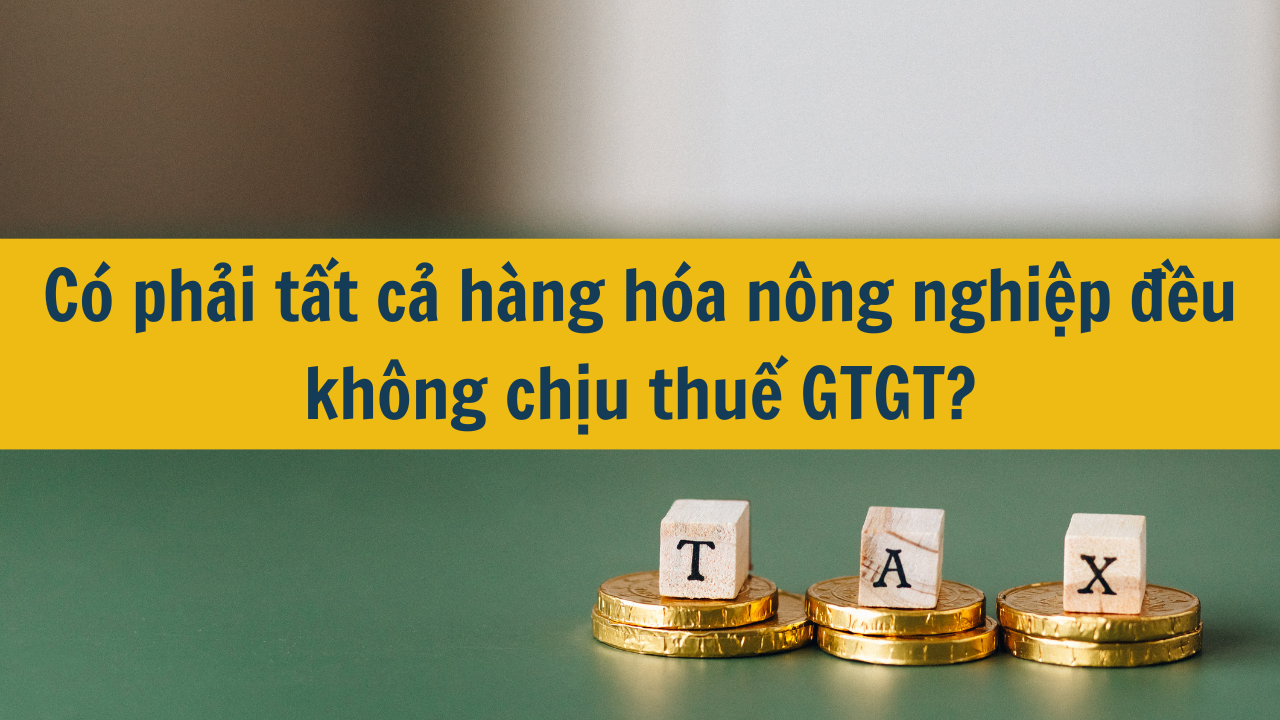
Có phải tất cả hàng hóa nông nghiệp đều không chịu thuế GTGT?
Hàng hóa nông nghiệp là một trong những lĩnh vực được ưu tiên về chính sách thuế, với nhiều loại sản phẩm không phải chịu thuế giá trị gia tăng (GTGT). Tuy nhiên, không phải tất cả hàng hóa nông nghiệp đều được miễn thuế GTGT. Bài viết này sẽ giúp bạn hiểu rõ hơn về những loại hàng hóa nông nghiệp nào được miễn thuế GTGT và những trường hợp nào vẫn phải chịu loại thuế này. 21/11/2024Kinh doanh hải sản tươi sống chưa qua chế biến có đóng thuế GTGT không?
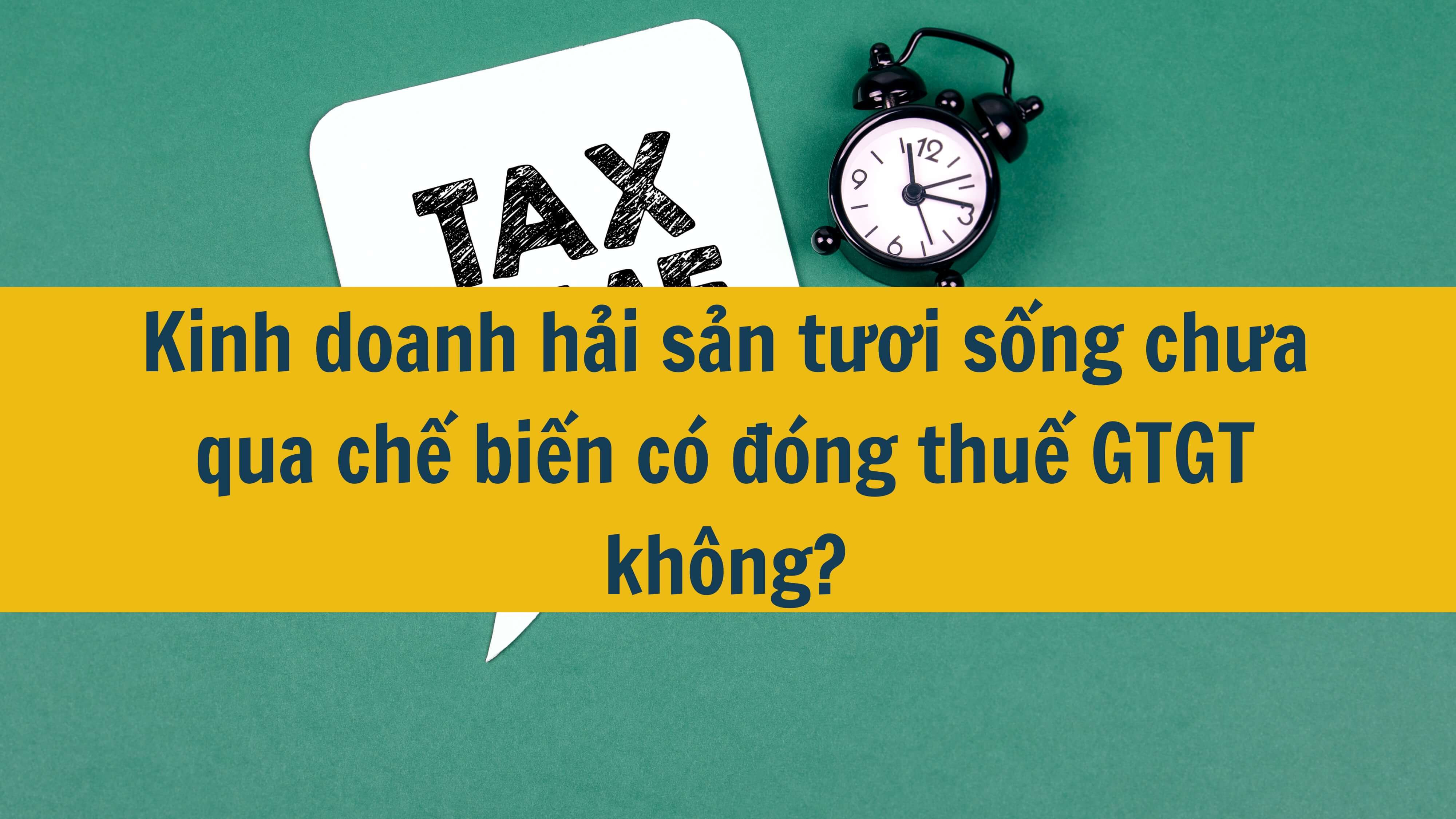
Kinh doanh hải sản tươi sống chưa qua chế biến có đóng thuế GTGT không?
Hải sản tươi sống là một mặt hàng được ưa chuộng trong bữa ăn hàng ngày của nhiều gia đình. Tuy nhiên, việc kinh doanh mặt hàng này liên quan đến nhiều quy định pháp luật, trong đó có thuế giá trị gia tăng (GTGT). Vậy, kinh doanh hải sản tươi sống chưa qua chế biến có phải đóng thuế GTGT hay không? Bài viết này sẽ giúp bạn giải đáp câu hỏi trên. 18/11/2024Bán phế liệu có cần xuất hoá đơn GTGT hay không?
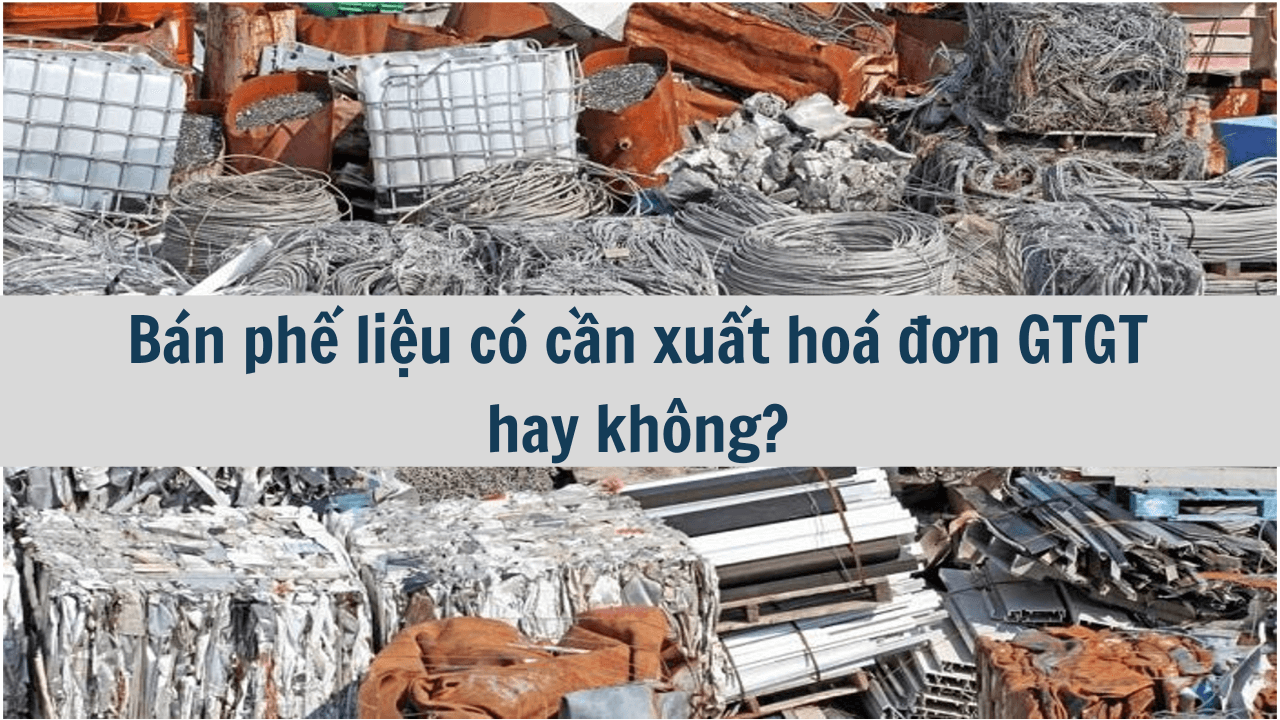
Bán phế liệu có cần xuất hoá đơn GTGT hay không?
Phế liệu là những vật liệu, hàng hóa hoặc sản phẩm đã qua sử dụng, không còn giá trị sử dụng trong trạng thái hiện tại và thường được thu gom để tái chế hoặc xử lý. Vậy khi kinh doanh bán phế liệu thì doanh nghiệp có cần xuất hóa đơn giá trị gia tăng theo quy định không? Chúng tôi sẽ giải đáp thắc mắc trên thông qua bài viết dưới đây nhé. 18/11/2024Hàng hủy có phải xuất hóa đơn không?
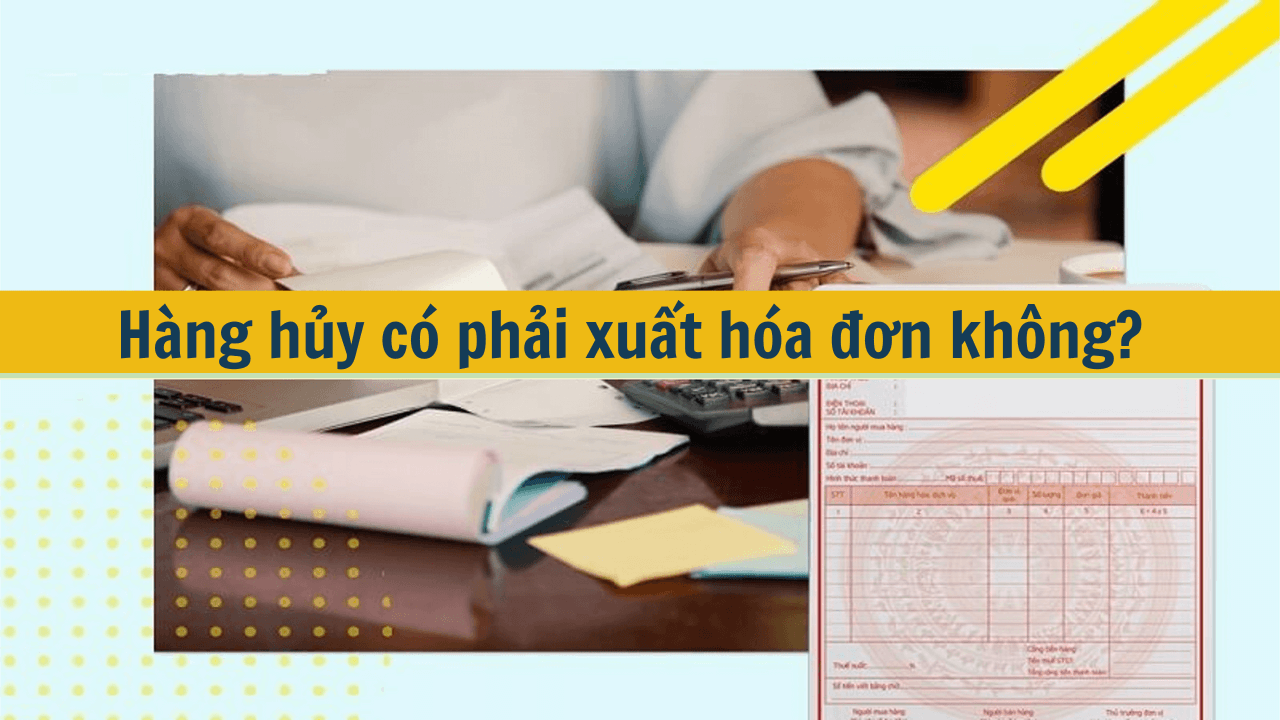
Hàng hủy có phải xuất hóa đơn không?
Doanh nghiệp khi sản xuất, kinh doanh hàng hóa, dịch vụ phải xuất hóa đơn đầy đủ, chính xác theo quy định. Trong quá trình sản xuất, kinh doanh thì khi sản phẩm bị hư hỏng, không thể đưa ra thị trường thì phải hủy theo đúng quy định. Vậy khi hàng hóa bị hủy thì có phải xuất hóa đơn không? Bạn hãy cùng tìm hiểu vấn đề này thông qua bài viết dưới đây nhé. 18/11/2024Tổng giá trị các hóa đơn trong ngày trên 20 triệu có được thanh toán bằng tiền mặt không?
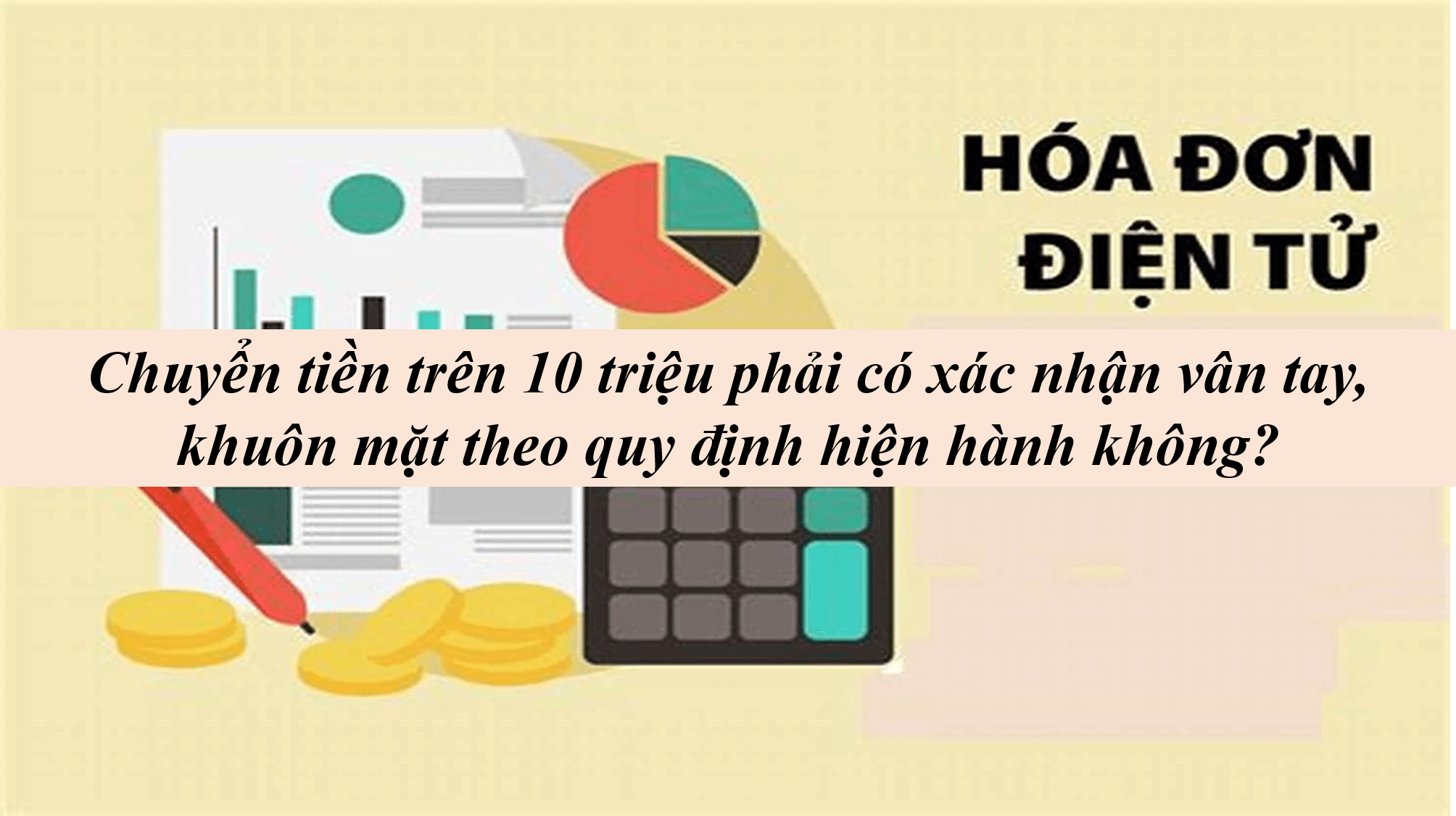
Tổng giá trị các hóa đơn trong ngày trên 20 triệu có được thanh toán bằng tiền mặt không?
Theo quy định của pháp luật hiện hành thì việc kinh doanh mua bán hàng hóa, dịch vụ trên thị trường phải xuất hóa đơn đầy đủ và chính xác. Đồng thời, pháp luật còn quy định giá trị hóa đơn bao nhiêu phải thanh toán bằng hình thức chuyển khoản, và bao nhiêu được lựa chọn giữa hình thức chuyển khoản hoặc tiền mặt. Vậy câu hỏi được đặt ra là Tổng giá trị các hóa đơn trong ngày trên 20 triệu có được thanh toán bằng tiền mặt không? Bài viết dưới đây sẽ giúp bạn giải đáp được những thắc mắc trên nhé. 10/11/2024Thuế giá trị gia tăng đối với hoa hồng đại lý bảo hiểm

Thuế giá trị gia tăng đối với hoa hồng đại lý bảo hiểm
Với sự phát triển mạnh mẽ của ngành bảo hiểm, hoạt động của các đại lý bảo hiểm ngày càng trở nên quan trọng. Bên cạnh việc hiểu rõ về sản phẩm bảo hiểm, đại lý bảo hiểm còn cần nắm vững các quy định pháp luật liên quan, đặc biệt là về thuế. Trong đó, thuế giá trị gia tăng (GTGT) đối với hoa hồng đại lý bảo hiểm là một vấn đề được nhiều người quan tâm. Bài viết này sẽ giúp làm rõ những quy định hiện hành về vấn đề này, nhằm hỗ trợ đại lý bảo hiểm thực hiện đúng nghĩa vụ thuế của mình. 07/11/2024Chính sách thuế khi thanh toán bằng thẻ visa
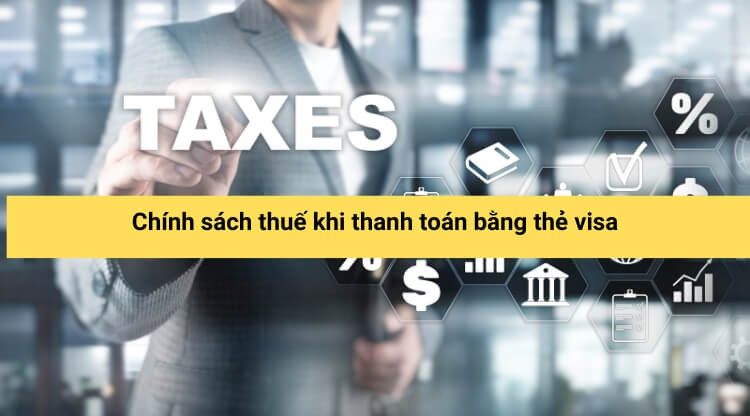
Chính sách thuế khi thanh toán bằng thẻ visa
Trong thời đại công nghệ số phát triển như hiện nay, việc thanh toán bằng thẻ Visa đã trở nên phổ biến và tiện lợi. Tuy nhiên, nhiều người vẫn còn băn khoăn về các chính sách thuế liên quan đến hình thức thanh toán này. Bài viết này sẽ giúp bạn hiểu rõ hơn về những quy định của pháp luật về thuế khi sử dụng thẻ Visa để thanh toán, từ đó có những quyết định tài chính đúng đắn. 07/11/2024Phân biệt không chịu thuế, thuế suất 0%, miễn thuế
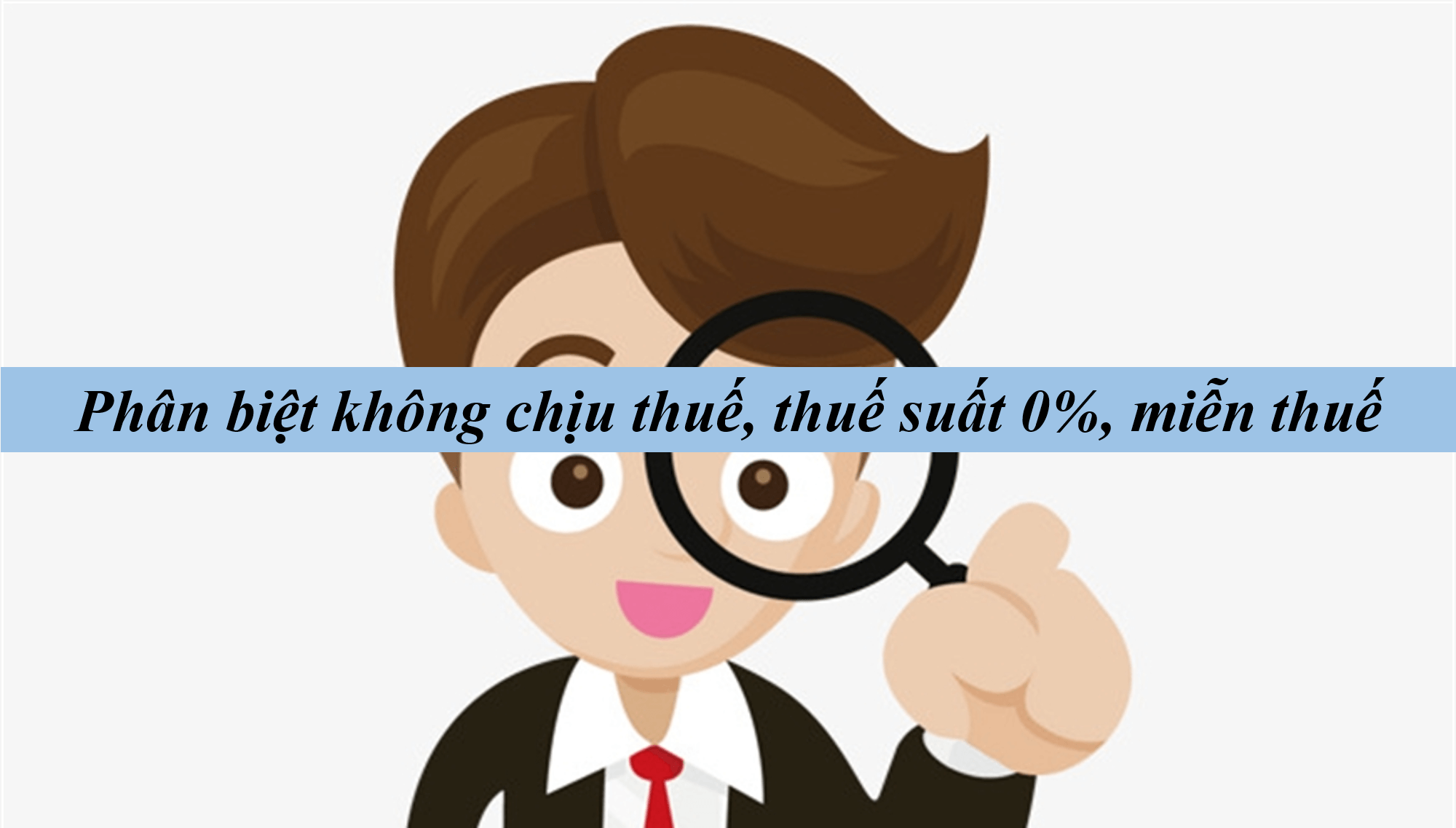

 Thông tư 26/2015/TT-BTC (Bản Word)
Thông tư 26/2015/TT-BTC (Bản Word)
 Thông tư 26/2015/TT-BTC (Bản Pdf)
Thông tư 26/2015/TT-BTC (Bản Pdf)